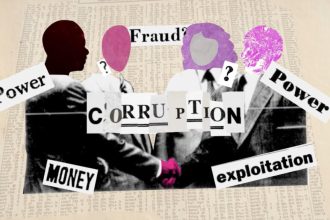In the realm of policy decisions, the repercussions often extend beyond the legislative chambers. When people face job losses due to certain activities, such as the passing of the Anti-Alcoholic bill or the merging of institutions, it can create economic and social challenges. Politicians or people who advocate for such changes might face scrutiny and discontent if such activities directly impact them. There may be protests or marches reflecting the concerns and emotions of the affected communities. Their feelings may range from frustration to anger depending on the perceived impact and unfairness of the decisions.
The Economic and Social Challenges As institutions grapple with job losses resulting from certain unnecessary activities, the immediate fallout includes economic and social challenges.
Unemployment rates rise, impacting families and communities. This economic strain can contribute to social unrest and a sense of uncertainty among those affected.
The architects of these policy changes, often members of parliament, find themselves under increased scrutiny, and questions about the fairness and necessity of the decisions arise. Politicians may face challenges in justifying their stance.
The affected individuals and communities are voicing their concerns, demanding accountability and reconsideration of the decisions that are leading to such policy changes, which are causing or will cause job losses.
The Diverse Range of Emotions: T
he emotional spectrum within affected communities is broad, ranging from frustration to anger. Some are feeling betrayed by the very institutions that were meant to safeguard their interests, such as parliament. This perceived unfairness of decisions can heavily influence the emotional response, shaping the tones of protests and public discourse.
Its Effects on Investors:
The passing of the Anti-Alcoholic bill will have a significant effect on investors too. This bill seems to undermine investors’ confidence in Uganda’s economy. It’s crucial for the government to attract and retain foreign investors, as they play a vital role in driving economic growth and development. This sudden change in policy could lead to capital flight and deter future investments, harming both local businesses and the overall economy.
In Conclusion:
Policy makers must anticipate and address the diverse range of emotions and concerns that arise within the affected communities, striking a balance between economic imperatives and social responsibility.




















